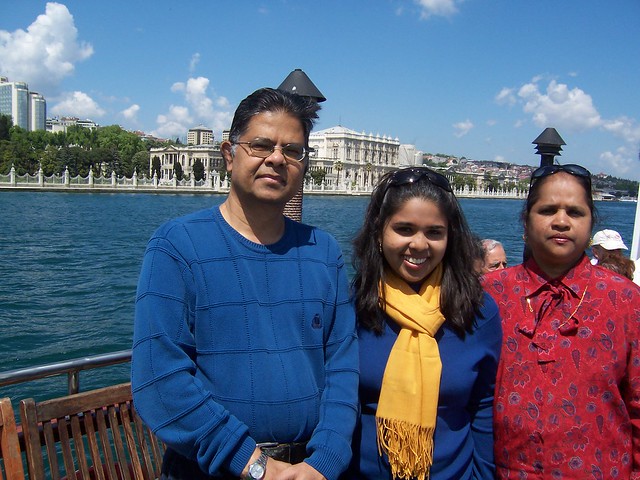By Usama Khalidi for TwoCircles.net,
The death of anyone’s loved one is a private tragedy, but in Omar Khalidi’s passing away India lost a different kind of its devotee, one who wanted to see its greatness remain unsullied by passing political passions, and discriminatory practices against major segments of its population. This is both a brother’s tribute to his memory, gone exactly five years on November 29, and recognition of his service to the cause of fairness in the world’s greatest democracy’s political process and economic life.
Omar’s essays on an important aspect of India’s political economy, focused on the 150 million or so subset of the population since independence (the population Muslims in India, according to 2011 census, is 172.2 million), were published as Muslims in Indian Economy, Three Essays Collective, New Delhi, 2006.

In his book, Khaki and Ethnic Violence in India: Army, Police, and Paramilitary Forces During Communal Riots, Three Essays Collective, 2010, Omar demonstrated a conspicuous under-representation of Muslims in the three major Indian institutions, the military, police and the paramilitary forces, such as PAC and BSF. Recruitment policies deliberately discriminated against Muslims, and still used the British colonial ethnic criteria of “martial races,” and even constituted brigades and divisions on the basis of some preferred ethnicities, such as Dogra and Rajput. For example, he cited one 2004 report that the Indian armed forces had only 29,000 Muslims in a total of more than 1 million men and women in uniform. Omar condemned the ethnic basis of selection and argued for the principle of more or less proportional representation.
In the Indian police services, Omar argued that a negligible percentage of Muslims are represented, especially in areas where they are concentrated, and are often vulnerable to violence. What’s worse, in times of the so called “communal riots,” police forces have abetted the massacres of innocents, as in the Gujarat carnage of 2002, and in other places, they have failed to protect Muslim citizens from organized, armed mobs.
It took Omar many years of painstaking research and interviews with anyone relevant to his subject during almost yearly visits to India to achieve a breakthrough in presenting the Muslims’ case before the nation, on NDTV and other national channels; arguing with solid official data that for India to become a truly modern and vibrant nation, it must strive to end discrimination against Muslims, who also have a right to defend their country against foreign enemies, whether on the China front or on the Pakistan front. Omar collected data, in whatever ways, he could, while holding on to his job as a librarian at the Agha Khan Islamic architecture library at Massachusetts Institute of Technology. He never missed a chance to interview top Indian bureaucrats or military generals living in retirement in the United States, or just visiting.
Another important piece of Omar’s research work was a well-documented and well argued indictment of the Archeological Survey of India as a virtual arm the Hindutva chauvinists since independence. The government agency had most of its budget devoted to ancient Indian history and culture, and allowed all the medieval monuments and relics to deteriorate and shrink in size as development took place all around them.
His last research effort was his 120-page report on the state of Urdu literacy in India, 2010. This comprehensive report offers government statistics on the total number of schools teaching through the medium of Urdu at various stages in different states. It showed Maharashtra with the highest number of pupils in secondary and higher secondary schools at 9.5 lakhs. Bihar was in second place with 8.75 lakhs, Karnataka third with 4.75 lakhs, and only 1.25 lakhs in UP.
Among his recommendations was the need for further research on the quality of education imparted in Urdu. This was a first ever effort to obtain a complete picture of literacy in Urdu, a language held dear by more than 55 percent of the Indian Muslim population.
Going back to the mid-1980s, Omar and I had a serious disagreement on secularism in India. His opinion, in my view, was much more representative of the Indian Muslim society in general, stuck as it was in a siege mentality, of which MJ Akbar and others have written. However, his views and, I think, the popular perception among Muslims after the Babri Masjid vandalism and after the Gujarat carnage of 2002, had evolved to an acceptance of secularism in principle, as defined by the Indian Constitution, as defectively as it does. One evidence of this acceptance of secularism was the declaration made by Jamaat-e Islami Hind president in mid-90s, and by the All India Muslim Majlis-e Mushawarat, which itself had come into being as a result of the worsening inter-community relations.
Dr. Abu Nasr M. Khalidi, our father, was a history professor at Hyderabad’s Osmania University. He and many in his generation of Muslim elites had chosen to stay in India, but were animated by Abul Ala Maududi’s seductive dream of seeing Islam and the Muslim world emerge as a third political force on world stage, the first being the capitalist West, and Marxism being the second. That dream died an ignominious death in Pakistan, where religion-based nationalism degenerated into murderous terrorism, from which the country hasn’t yet recovered. The Nehruvian idea of a composite Indian culture, the Ganga-Jamni national life, helped Muslims to begin to identity with modern India, and its aspirations.
Omar Khalidi was a very good representative of the new Muslim elites, who are proud of India’s great history of pluralism, and the composite culture that gave rise to Urdu and its poetic traditions – where would Bollywood be without the Urdu poetry from the 1930s to today? With his research on the status of Urdu literacy, Omar Miyan also paid his debt to the language.
A complete list of Dr. Omar Khalidi’s works is accessible at: https://omarkhalidi.wordpress.com/

